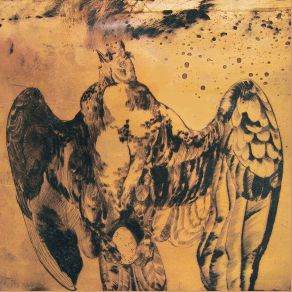The Glass Bead Game
Download links and information about The Glass Bead Game by James Blackshaw. This album was released in 2009 and it belongs to Alternative, Songwriter/Lyricist, Acoustic genres. It contains 5 tracks with total duration of 49:31 minutes.

|
|
|---|---|
| Artist: | James Blackshaw |
| Release date: | 2009 |
| Genre: | Alternative, Songwriter/Lyricist, Acoustic |
| Tracks: | 5 |
| Duration: | 49:31 |
| Buy it NOW at: | |
| Buy on iTunes $9.99 | |
| Buy on Amazon $7.99 | |
Tracks
[Edit]| No. | Title | Length |
|---|---|---|
| 1. | Cross | 8:38 |
| 2. | Bled | 10:25 |
| 3. | Fix | 5:38 |
| 4. | Key | 6:02 |
| 5. | Arc | 18:48 |
Details
[Edit]In five short years, 12-string guitarist and composer James Blackshaw has not only been prolific, he's created for himself a musical catalog that is dazzling in its range, complexity, and mystery. In addition to releasing his own recordings, he's collaborated with vanguard lute master Jozef Van Wissem in the Brethren of the Free Spirit, and has appeared on Current 93's 2009 album Aleph at Hallucinatory Mountain. In 2008, the venerable Tompkins Square indie re-released his previous catalog in the United States — some of it was originally privately issued in very limited and/or vinyl-only editions. The label also released a then new effort, the beautiful Litany of Echoes, in the same year. The Glass Bead Game, issued on Michael Gira's Young God, named no doubt for the Hermann Hesse novel of the same name, is another step — in fact, a leap — forward. In addition to his own gorgeous 12-string playing, he has employed the talents of vocalist Lavinia Blackwell, and Current 93 members John Contreras on cello and Joolie Wood on violin. Blackshaw also plays harmonium and piano here. The pieces on this set are ambiguously titled with single words. The opener, "Cross," is among the most startlingly beautiful pieces he's written. A reverbed 12-string plays a series of repetitive phrases as the strings play harmonic drones in the backdrop, propelling the sense of motion on until the guitar begins its melodic journey through the foreground, repeating the original phrase often enough to keep the listener grounded even as the lyric nature of the overdubbed guitars drones and pines away at a complex and haunting yet springlike melody. "Bled" is a sparser piece. The guitar, kissed with reverb and in places overdubbed, is accompanied by a harmonium playing a single chord as it begins a slow but methodical journey toward the center of a maelstrom that embodies everything from rags and blues to even Eastern folk styles in its complex, contrapuntal melody.
A lilting chamber piece for piano and strings that is full of space and delicate textures and seems to portray stillness as a place, "Fix" is followed by "Key," a guitar journey that seems to answer the former piece by tracing movement from a single place to a wide-open field of possibilities and directions. It is songlike rather than simply atmospheric. The final track — and also the longest at nearly 20 minutes — is "Arc," which begins as a solo piano piece. The piano is once again caressed in reverb, playing what seems like the halting beginning of a nearly forgotten melody. As the strings enter, they do so in single-note drones and begin very slowly to emerge in harmony, creating their own melodic frames while holding a series of chromatic changes very closely. The piece begins to evolve from its snail-like tempo into something beautifully pastoral and then pronounced; it's an open space of possibility for engagement between the three instruments and, eventually, Blackwell's beautiful contralto. The control by Contreras and Wood is exceptional here. Blackshaw is working out his melody very purposefully, repetitively, and in controlled bits and pieces. That said, by the time the piece reaches its center, the density of melody, sound, and texture is one of almost unbearable beauty and the release of tension is full to the breaking point of bliss itself. The Glass Bead Game is the most forward-thinking and sublimely executed of James Blackshaw's releases to date. It is a work that will hopefully introduce him to an entirely new audience who can appreciate the depth, sensitivity, and vision he brings to modern acoustic music.